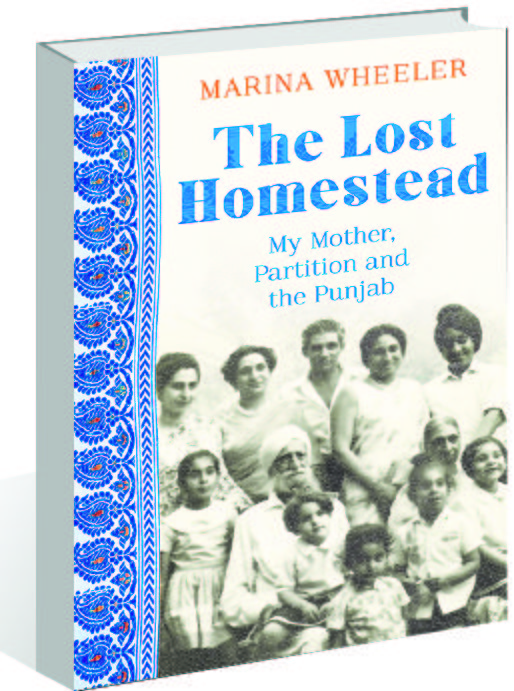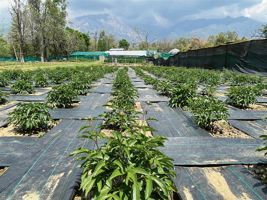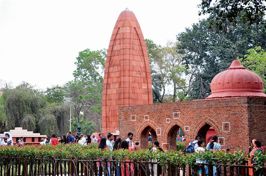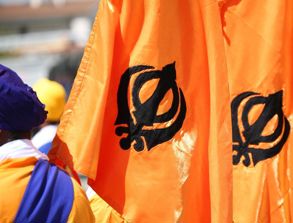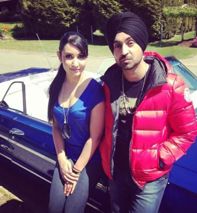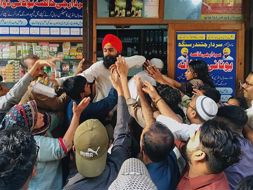THE LOST HOMESTEAD: MY MOTHER, PARTITION AND THE PUNJAB by Marina Wheeler. Hodder and Stoughton/Hachette. Pages 328. Rs 699
Book Title: THE LOST HOMESTEAD: MY MOTHER, PARTITION AND THE PUNJAB
Author: Marina Wheeler
M Rajivlochan
India’s seventh Deputy Prime Minister was born in Pakistan; Pakistan’s 10th President was born in India. How did this come about is a question that has puzzled a number of people. For Marina Wheeler, such questions became important because it underpinned the personal history of her Indian mother, who was born in Pakistan and lived in England. The result is a very readable story, a story that is the history of those times when Punjab got partitioned, as seen through the experiences of a young woman whose family was forced to flee as the bloody Partition was imposed upon an unsuspecting people by their political leaders.

The story is also about how people learnt to let go of the past, while ensuring that the traumas of the past did not hurt them as they went about carving a future for themselves. The past clung in unspoken ways, but was never allowed to harm the present or the future. As Dip tells her daughter, who is writing the story of the Partition of India through the eyes of her mother, ‘Often I felt that here (in Sussex), with Charles, I had regained the paradise I lost in Sargodha.’
It is also a story of how, even at the time when their leaders betrayed them, the common people took charge of their own fate. As Dip explains to her daughter Iqbal’s famous verse, Khudi ko kar buland…: ‘I understood it to mean that you shape your own fate. It wasn’t just mapped out for you.’
The story shows us interesting snippets about the interfacing of people with their history. The people in Pakistan tell the author that ‘the British were popular… as they reinstated Islamic worship which Ranjit Singh’s intolerant successors had banned’. We are also told of the ‘fearsome Emperor Aurangzeb’, who built the Badshahi Mosque ‘to commemorate defeating the Hindu King Shivaji in battle’.
The boundaries of a partitioned Punjab were drawn after consulting, the author notes, the Muslim League, the Congress, the Christians, the Anglo-Indians, the Ahmadiyas, and the Scheduled Castes. The Sikh claim over the canal colonies, she remarks, was based on their having poured in money and labour in the land, as also to the fact that it was the spiritual home to some of the most important Sikh gurdwaras, including Guru Nanak’s birthplace. Justice Din Muhammad, however, dismissed the Sikh claim for being of no consequence. He insisted that Sikh rule over Punjab was trivial and, their ‘shrines were built to commemorate the most insignificant’.
A remarkable character of this story is the absence of rancour. Even after the forced displacement from Sargodha to Delhi, after witnessing the horrors of Partition, Dip recalls that everyone in her circle of acquaintances in Delhi in the aftermath of Partition ‘wanted Hindu-Muslim unity’. No one approved of the ‘RSS militants intent on creating a Hindu theocratic state’.
A nugget of memory that particularly caught my eye was the memory of Dip and six other girls from Lady Irwin College, where they studied, going to wish Nehru on his birthday on November 14, 1948. ‘Six of us went to Nehru’s office to wish him a happy birthday. We addressed him as Chacha Nehru because he loved children.’
Amidst turbulent times, this is a story of, to use a phrase that the author uses in a different context, ‘carefully crafted equilibrium’. It is worth reading. And mulling over.






